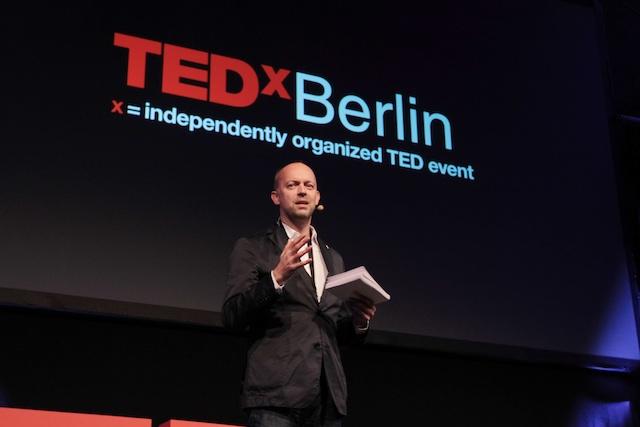Elizabeth Amondi Okumu
Elizabeth Amondi Okumu is a program associate at Trust for Indigenous Culture And Health (TICAH) managing the adolescent, youth and university programs. Elizabeth services as a mentor to girls both in primary and secondary schools, through her work at TICAH, and her self initiated program called the Sister-to-Sister Initiative, encouraging them to pursue their education and fight for their rights. Elizabeth has presented papers at the 4th and 5th Africa Conference on sexual Health and rights, participated at the 60th CSW as a youth advocate, and is also 2016 Women Deliver Young leader. She also recently started a blog, La Gazelle Noire, to celebrate diverse people from her community who are doing exceptional work to improve lives in these communities.
Elizabeth Amondi Okumu
Elizabeth Amondi Okumu is a program associate at Trust for Indigenous Culture And Health (TICAH) managing the adolescent, youth and university programs. Elizabeth services as a mentor to girls both in primary and secondary schools, through her work at TICAH, and her self initiated program called the Sister-to-Sister Initiative, encouraging them to pursue their education and fight for their rights. Elizabeth uses her leadership and advocacy training as well as her film production skills to help actualized her vision of the future, a future in which women and girls from all corners of the earth will have a voice and the power to make healthy and informed sexual choices. Elizabeth has presented papers at the 4th and 5th Africa Conference on sexual Health and rights, participated at the 60th CSW as a youth advocate, and is also 2016 Women Deliver Young leader.
Ken Banks
Ken Banks, Founder of kiwanja.net and creator of messaging platform FrontlineSMS, devotes himself to the application of mobile technology for positive social and environmental change in the developing world. He has worked at the intersection of technology, anthropology, conservation and development for the past twenty-five years and, during that time, has lived and worked across the African continent. He is a PopTech Fellow, a Tech Awards Laureate, an Ashoka Fellow and a National Geographic Emerging Explorer, and has been internationally recognised for his technology-based work. In 2013 he was nominated for the TED Prize, and in 2015 was a Visiting Fellow at RMIT University in Melbourne, Australia. In late 2015 Ken was appointed CARE International’s first Entrepreneur in Residence. He is also a published author, with his first edited book, “The Rise of the Reluctant Innovator”, self-published in late 2013 with a follow-up, published by Kogan Page, released in March 2016.
Marieme Jamme
Mariéme Jamme
Mariéme Jamme is a Senegalese-born British businesswoman in technology. Her consultancy company Spotone Global Solutions helps technology companies to set a foothold in Africa, Europe, the Middle East and Asia. She has supported many organisations such as Google, Ernest and Young, HSBC Private Banking, The Office of Gordon and Sarah Brown, The Africa Progress Panel chaired by Kofi Annan, The Obama Administration, and multiple African governments through their STEM policies. Often called the diplomat of technology, Mariéme was named one of the 100 most influential Africans by the African Business Magazine and 20 youngest powerful women in Africa by Forbes. Marieme’s latest venture includes the launch of IAMTHECODE, a new movement aiming at mobilising governments, businesses and investors to support girls and young women in STEAMD (Science, Technology, Engineering, Arts, Mathematics, and Design).
Natalia Mateo
Music and the Arts had always been an integral part of the houshold. She was born in Warsaw, Poland, grew up in Austria, then attended a nuns girls’ school back in Poland, at the time being she is living in Germany. Piano, violin and guitar lessons, the Arts, the nuns, studied languages and humanities, frequent house moving not only left an imprint, they have spun the soul’s fabric into what it is now – a rare mixture, soft but tear-proof, thin as a veil, controversial against the background of all hijab debates, at times thick and rough as biker leather. Against the odds, through the thickett of various projects, teachers, downs and ups, failures and successes (in this exact order) she landed at the Institute for Music in Osnabrück with first class music teachers and a personalised and supportive musical setting. All that is supposedly in the music, but look for yourself.
Richard Haep
Richard Haep is a biochemist by education, but switched to development aid during his PhD, when he decided to make his passion, sustainable development, his profession. After a graduate course in rural development, he joined GTZ for 8 years. His first field experience brought him to Peru, working as advisor in urban sanitation and water shed management. Since 2002 he works for Welthungerhilfe, a German NGO specialized in food and nutrition security. 8 years in Cuba and 4 in Peru taught him countless lessons on endogenous innovations and the ingenuity of people to solve the problems they are facing, the power of working together and convinced him that things that seem impossible to reach can actually happen, be it in the field, the office or in politics. He came back to Berlin in January 2016 to support his organization in the fight for zero hunger on a political level.
Stefano Vella
Stefano Vella is a clinician and a researcher. He is based in Rome, at the Italian National Institute of Health. His research focus has been mainly based on his infectious diseases and internal medicine backgrounds, addressing HIV/AIDS, tuberculosis, viral hepatitis, neglected tropical diseases, but also non communicable chronic diseases. In 1996 he participated to the drafting of the first HIV treatment guidelines introducing the concept of the combination cocktail which induced the dramatic reduction of HIV/AIDS morbidity and mortality in western world, thanks to the introduction of the antiretroviral drugs “cocktail”. As President of the International AIDS Society, Stefano has been instrumental to bringing the AIDS Conference, for the first time, in Africa (Durban, 2000), a move which is considered to be the turning point of the battle for universal access to antiretroviral drugs.

